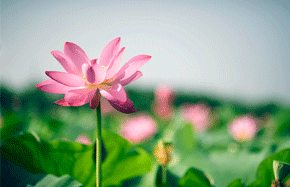Compilation celebrates Hong Kong milestone
Separately, another display will be up at Huang Rong Yuan Tang, a villa on Gulangyu, an island adjacent to Xiamen, where the China Record Museum is located, from July 12 to August 31. The last display will be from August 30 to November 30 at the Hong Kong Central Library.
Fan Guobin, the general manager of the corporation, says Art-Tune helps links overseas Chinese with the Chinese mainland through music.
Looking back, he says the corporation sent teams over 1957-58 to record folk music and opera in the Fujian and Guangdong provinces, where Cantonese music and operas were popular.
And nine albums of Cantonese music and opera were released by the corporation from 1958 to 1963. Art-Tune also released these albums in Hong Kong, and they were well received by music lovers there, says Fan.
The albums appealed not just to Hong Kong music fans, but were used by filmmakers there, especially for martial arts movies during the 1960s.
Referring to the trend, Chang Hok-yan, the chief librarian of the Leisure and Cultural Service Department of Hong Kong Public Libraries, which co-organized the displays, says: "At that time, original film soundtracks were very few. So, most filmmakers borrowed music from the albums, especially traditional Chinese operas and folk music.
"Lots of traditional Chinese music and Peking Opera pieces were used in martial arts movies. And Art-Tune bridged the music gap between the Chinese mainland and Hong Kong then."
Chang, who was born in Hong Kong, graduated from the Chinese University of Hong Kong with a major in Journalism and Communication and a minor major in music. He joined in the Hong Kong Chinese Orchestra as a professional sheng player and later received a master's degree of Applied Science in Library and Information Management from the Charles Sturt University, Australia and a doctorate in Music Librarianship from Middlesex University, in the United Kingdom.
"The music from the martial arts movies is a valuable memory for Hong Kong's audiences. It is also a way of spreading traditional Chinese culture in Hong Kong," he adds.



















